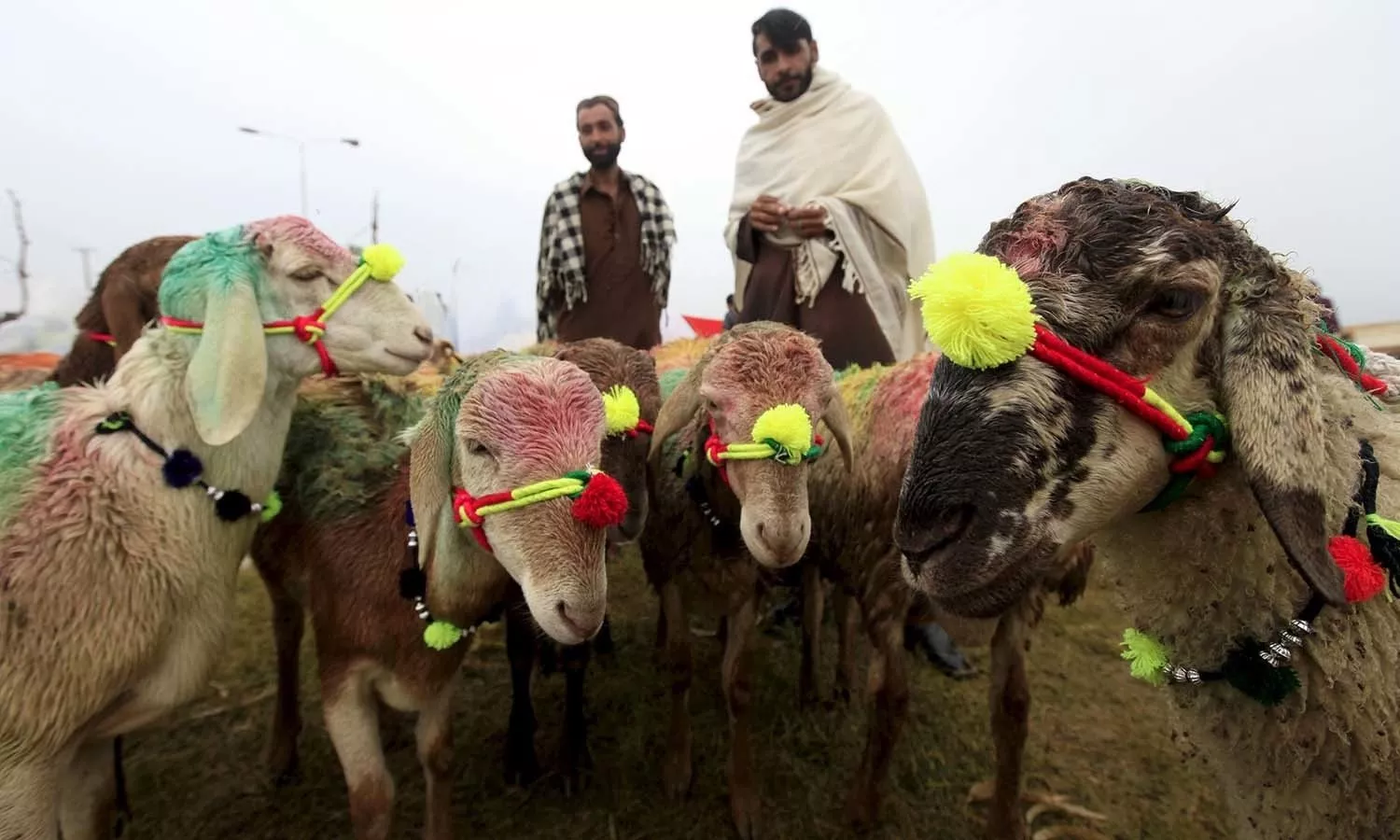Covid-19 SOPs flouted in Lahore's cattle markets
Elders, children found roaming without facemasks
LAHORE:The local administration has failed to implement coronavirus safety precautions in makeshift sacrificial animal markets in the provincial capital and buyers, including elderly and children, were witnessed roaming in them without face masks on Sunday.
As per the standard operating procedures (SOPs) for safety in cattle markets, experts have advised that only two persons per vehicle should be permitted to enter the premises to avoid further spread of coronavirus. Elderly citizens and children are not allowed to visit the markets. The administration and markets’ managements were told to ensure implementation of ‘distanced queue management’ at all entry points.
All animals should be pegged at a distance in the sheds so that close gathering of customers can be avoided during their inspection. The customers and sellers are required to wear face masks during their visits to the markets. The visitors, sellers and market staff have to go through a thermal scan at the entry point and any person detected with high temperature would be referred to medical camps for further assessment.
However, all these precautionary measures are being openly flouted in the makeshift cattle markets in the city. Hardly any official of the management or administrations is available to implement the SOPs. However, traffic wardens were seen raising awareness among the people about safety precautions by announcing social distancing messages through megaphones. Speaking to The Express Tribune, a cattle framer, Muhammad Latif, said he had brought about 50 small animals from Rajanpur for sale in the provincial capital.
He complained about slow trading activity but expressed hope that it would pick up momentum during the coming week. Responding to a question, he disclosed that when they brought the animals to the provincial capital, market staff had informed them about safety precautions and use of face mask. However, he claimed that it was difficult to breathe with face mask during hot and humid summer days. “Most traders and farmers have masks with them but we cannot cover our faces with a non-breathable piece of synthetic fabric,” he indicated.
Other cattle traders also made similar remarks and complained about low footfall in the markets owing to coronavirus fear. Several traders also said they were not afraid of the coronavirus disease as hardly any of them had witnessed a patient of the pandemic in their families or areas.
A citizen, Ali Ahmad, who was visiting a cattle market with his young sons, said they had come to check sacrificial animals’ prices. “As it was a weekend, we are just wandering in cattle markets to see the price trend. We will come again with friends and other family members, who know about sacrificial animals, to buy an animal to fulfil our religious obligation,” he maintained.
Another customer, Mutahir Baig, complained about high price of all sacrificial animals. He indicated that the prices of sacrificial animals are 30-40% higher than last year. Traders are blaming inflation and high cost of transportation for the increase in cattle prices. He, however, also paid little attention to a question about observing safety precautions and said Allah Almighty would help the people and save them from coronavirus. “No mask or safety precaution can protect you if Allah wants you to suffer from a disease,” he underlined with conviction.
Meanwhile, Punjab government appealed to citizens to cooperate with the authorities and show responsible attitude towards safety SOPs to contain the spread of the coronavirus pandemic. The government warned that violation of the SOPs during shopping and Eidul Azha will not be tolerated. Citizens should learn to live with coronavirus by adopting precautions as it cannot be predicted how long it would prevail, it said.
Published in The Express Tribune, July 20th, 2020.


COMMENTS
Comments are moderated and generally will be posted if they are on-topic and not abusive.
For more information, please see our Comments FAQ